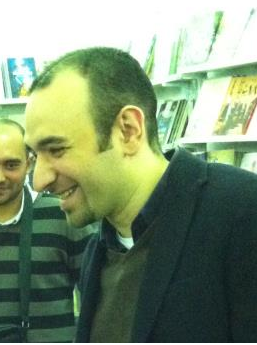CAIRO: Presidential hopeful Ahmed Shafiq denied Tuesday allegations that his candidacy is supported by the ruling military junta in a press conference to officially declare his intention to join the presidential race.
Registration for the elections is slated to begin on March 10.
"I trust that the armed forces will not support a specific candidate," Shafiq said. "Even if we propose that they field a candidate, what can they do? Can they use state security to rig the vote, for example?" he asked.
The presidential hopeful was briefly appointed prime minister from late January to early March 11 by ousted president Hosni Mubarak amid the popular revolt. He was Minister of Civil Aviation from 2002-2011 following a long military career culminating in the position of Commander of the Egyptian Air Force from 1996 to 2002 where he reached the rank of air marshal.
He is widely criticized for being a stalwart supporter of the ousted regime.
Shafiq denied such claims and expressed his pride for being "appointed by Egypt to face a political crisis," referring to the January 25 Revolution, which he later praised along with the Egyptian youth who "made the whole world respect them."
He denied being part of alleged negotiations between the ruling military, the Muslim Brotherhood group and the church to find "a consensual candidate."
"I do not belong to any party, I present myself to the Egyptian family. How many people do all the political powers represent? Four million? There are more than 50 million illegible voters," Shafiq said.
He added that he will have no problem dealing with Islamists, asserting that he is open to all political currents and is flexible regardless of his convictions.
"I am one of the descendents of Prophet Mohamed," Shafiq said to prove his Islamic heritage, which was received with a round of applause from supporters who filled two thirds of the conference room originally reserved for journalists in a fancy hotel in Sixth of October City.
Shafiq said that assertiveness and political will are all that is needed to confront the security vacuum, offering no specific proposals.
"When we use [reconciliation sessions] to convince people to stop blocking the railways, is this a respectable state?" Shafiq asked, adding that he will be armed by the people’s will to bring back security to the streets.
Shafiq proposed an economic agenda favoring foreign investment by rebuilding confidence, trust and respect for the Egyptian state.
"You cannot sell a [publically-owned] factory and then take it back. If the decision [privatization] was wrong from the beginning, why did we take it in the first place?" he asked.
"We should not privatize an entire sector…the government has to own at least 20 percent of the industry to balance the market if investors use monopolistic practices," Shafiq said, adding that the problem with state ownership of capital is only about management not the principle idea of ownership.
He cited the example of the US which adopts the most liberal vision of the economy, when the Obama administration resorted to state regulation of the economy in the wake of the 2008 financial crisis.
The former minister slammed calls for canceling the peace treaty with Israel, deeming them as empty rhetoric to address public sentiment to gain more votes.
"Those who adopt these calls do not understand what it means to sign a peace treaty after a war. If the people want to cancel the agreement I will do it, but it is my responsibility to show them the real repercussions of this and how it will affect us," Shafiq said.





